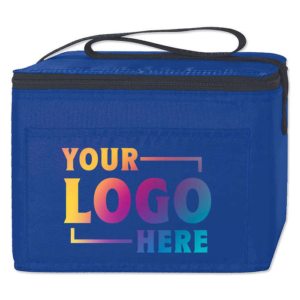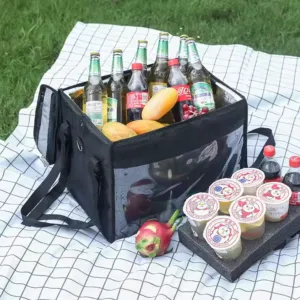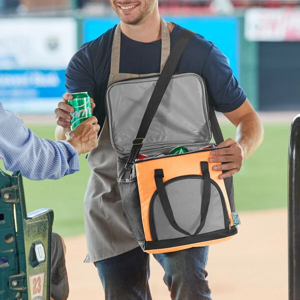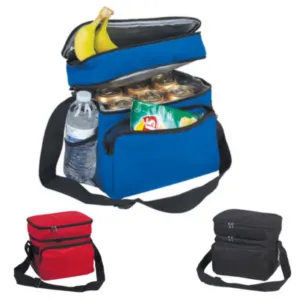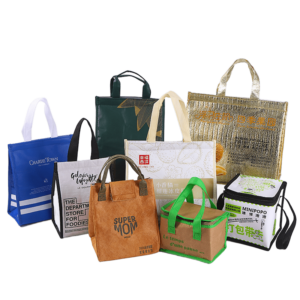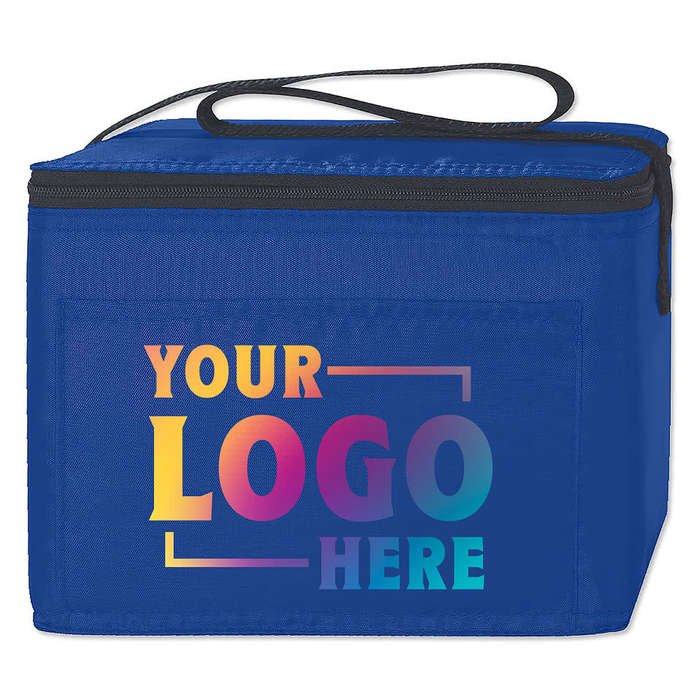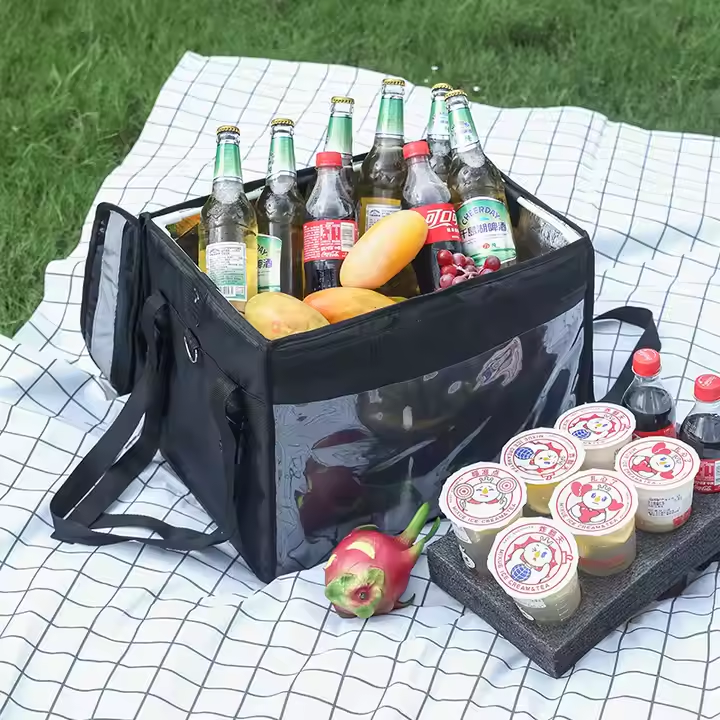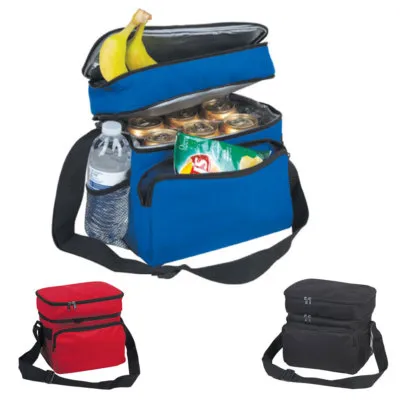Choosing the right cooler bag is vital for outdoor activities, deliveries, or daily use. This guide outlines the essential features that define a high-quality cooler bag. All insights are based on practical use, durability standards, and thermal efficiency benchmarks.
7 Must-Have Features of a High-Quality Cooler Bag
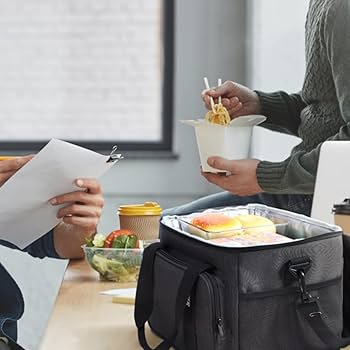
A high-quality cooler bag should offer superior insulation, waterproofing, durability, and easy portability to ensure maximum performance in any environment.
The key to a great cooler bag lies in the details. Let’s explore what makes one worth your investment.
1. Superior Insulation1
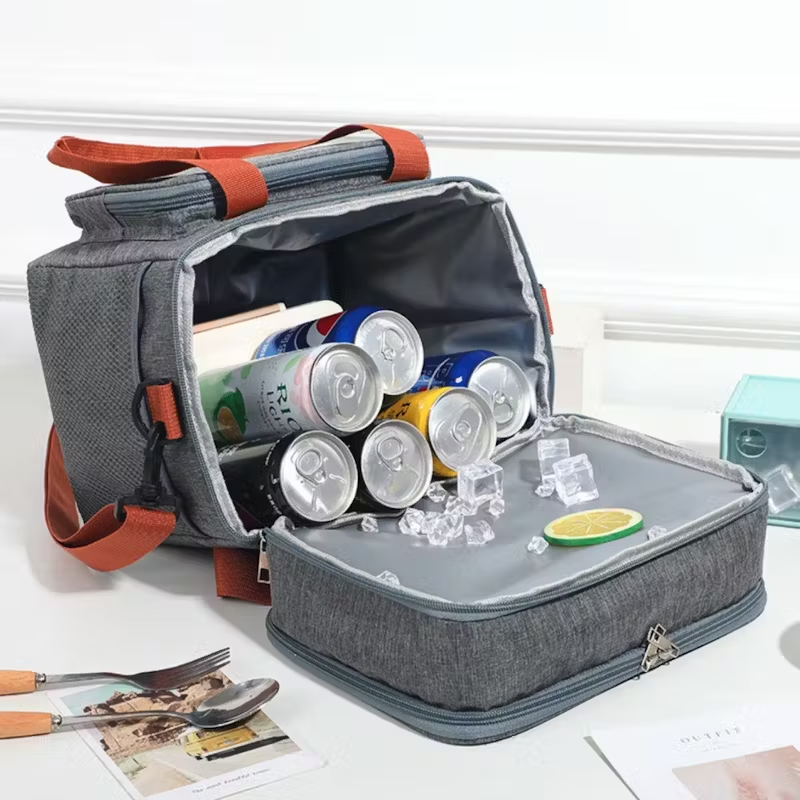
Effective insulation is the foundation of any good cooler bag. Without it, temperature control fails quickly.
Why Insulation Matters
Cooler bags work by trapping cold air and keeping hot air out. The more layers and better materials they have, the longer your items stay cold.
Common Insulation Types
| Insulation Material | Performance | Notes |
|---|---|---|
| PE Foam | Good | Affordable and lightweight |
| EPE Foam | Better | More durable and shock-resistant |
| Reflective Lining | Adds value | Helps reflect heat away from contents |
High-end bags often combine dense foam layers with aluminum or PEVA linings. This dual-layer approach maximizes cold retention and makes the bag suitable for long outings or delivery services. For best performance, look for insulation thickness of at least 5mm.
2. Leakproof and Waterproof Design2
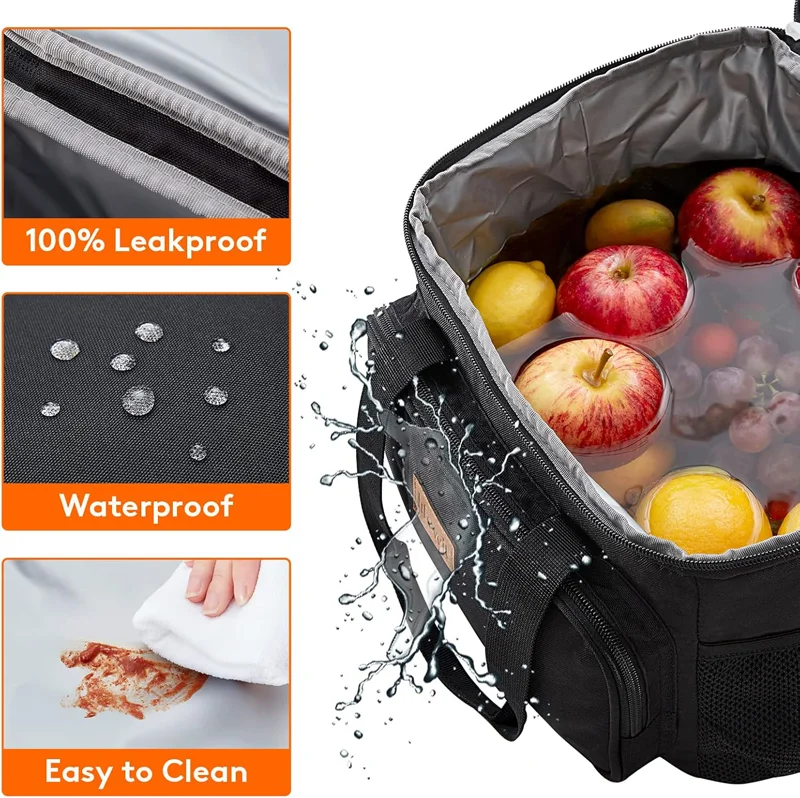
A cooler bag is only as good as its resistance to leaks and external water intrusion.
Essential Sealing Features
Waterproof materials protect the exterior while leakproof linings safeguard against internal spills. Seam welding or hot pressing methods are used in quality bags to make this possible.
Key Design Elements
| Feature | Importance Level | Benefit |
|---|---|---|
| Welded Seams | High | Prevent leaks from melting ice or liquids |
| Waterproof Zippers | High | Stop water ingress from outside |
| Reinforced Bottom | Medium | Adds protection from puddles or ground moisture |
These features are especially important for food delivery businesses or outdoor use in unpredictable weather.
3. Durable Outer Materials3
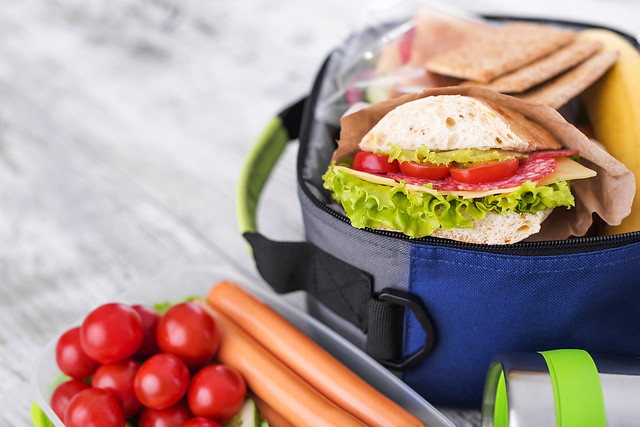
A rugged outer shell protects the insulation and extends the product lifespan.
Popular Material Options
| Material | Durability | Maintenance |
|---|---|---|
| Nylon (600D+) | Very High | Easy to clean |
| Polyester | High | Cost-effective |
| Vinyl | Moderate | Waterproof but less flexible |
Double-stitched seams, strong handles, and corrosion-resistant zippers also add to the lifespan. Look for bags that advertise tear resistance and UV resistance for heavy-duty outdoor usage.
4. Optimal Size and Capacity4
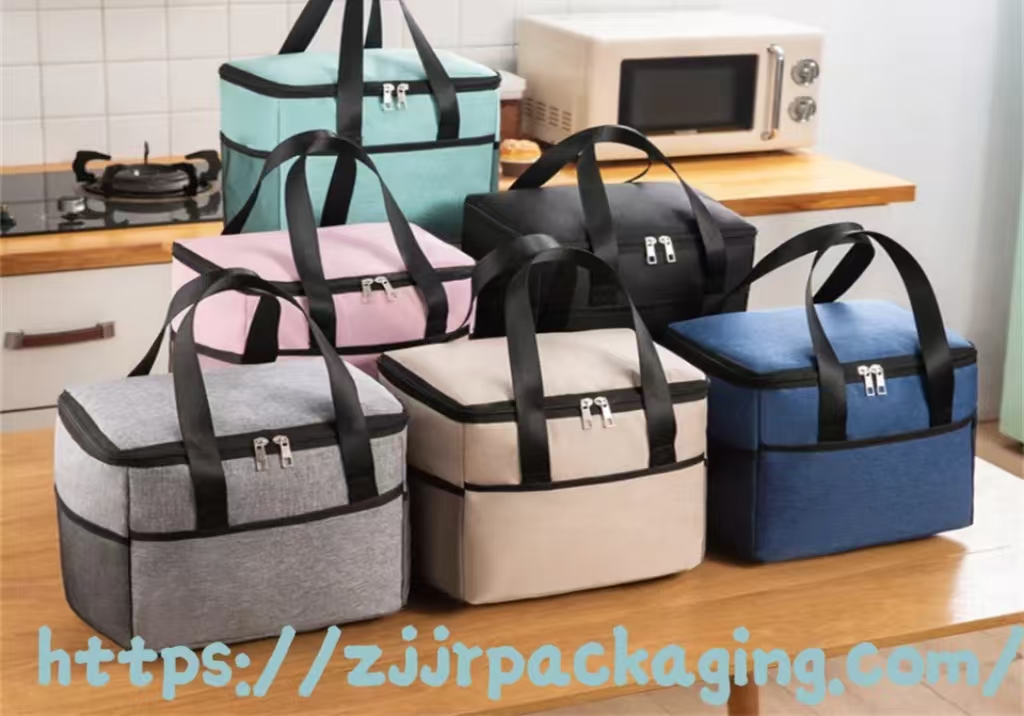
Choosing the right size helps avoid overpacking or wasting space.
Size Selection Tips
A family-sized picnic may need a 30L bag. For personal daily lunch use, 10L may suffice. Businesses transporting multiple meals might opt for 40L+ options.
Recommended Use-Capacity Chart
| Use Case | Suggested Capacity |
|---|---|
| Lunch Bag | 5-10 Liters |
| Family Picnic | 20-30 Liters |
| Catering/Delivery | 40+ Liters |
Assess your daily or business needs before selecting the appropriate size. Larger bags should also come with reinforced bases to manage weight distribution better.
5. Portability and Comfort5
Carrying comfort affects usability, especially for heavy loads.
Carrying Features That Matter
| Feature | Best Use Case |
|---|---|
| Padded Shoulder Straps | Personal, short trips |
| Side Handles | Team use, easy grab |
| Wheels & Telescopic Handles | Catering or events |
For large-volume bags, even distribution of weight across straps is key. Foam padding helps reduce strain during longer hauls. Side handles should be double-stitched for extra strength.
6. Extra Compartments and Storage6
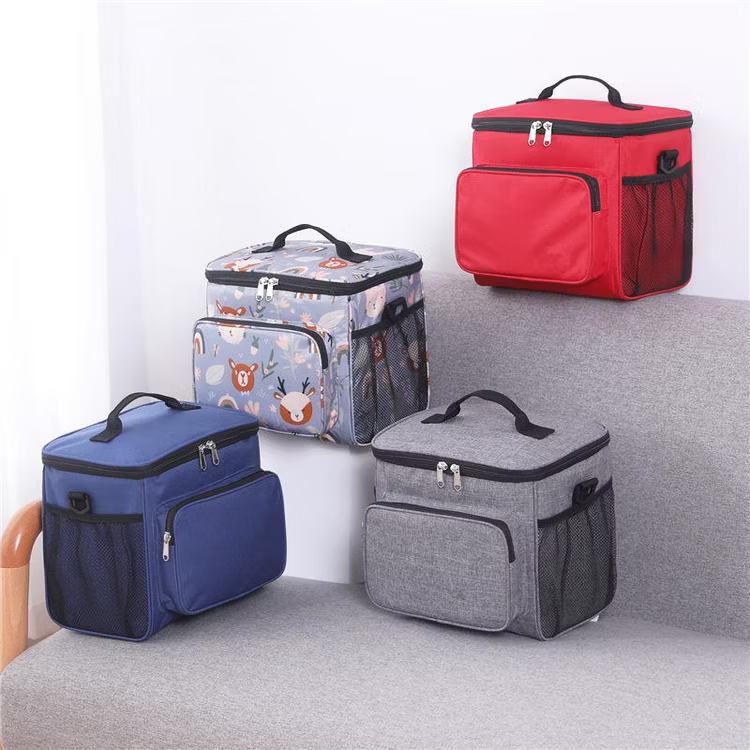
Storage options improve usability and keep items organized.
Why Compartments Help
Separated zones reduce cross-contamination between food, ice, and accessories. Many cooler bags now offer mesh pockets, zip compartments, or dry storage areas.
Typical Extras
| Storage Type | Use |
|---|---|
| Front Zip Pocket | Utensils, napkins |
| Side Mesh Pockets7 | Water bottles, keys |
| Dry/Wet Separation Layer | Meat, frozen goods |
These additions are particularly useful for meal delivery companies or travelers with diverse items to carry.
7. Efficient Seals and Zippers8
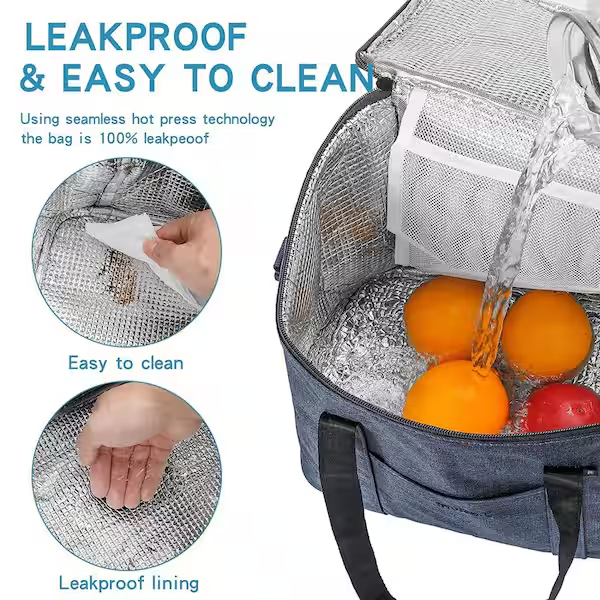
Zippers and seals lock cold air in and keep warm air out.
Must-Have Features
| Feature | Role |
|---|---|
| Airtight Zippers | Maintain temperature |
| Magnetic Seals | Fast, secure closing |
| Double Zipper System | Extra insulation layer |
Check for rust-resistant zippers if you expect exposure to moisture. Smooth glide and large grip pulls are also useful for quick access.
Conclusion
The best cooler bags are more than just insulated containers. They combine advanced thermal technology, rugged materials, smart storage, and convenient portability. Whether for personal or business use, investing in a bag with all these features ensures reliability and long-lasting performance. We’ve seen this firsthand at JiaRong Packing, where many of our global customers rely on these principles for large-scale food delivery or retail logistics.
Have a favorite cooler bag feature we missed? Share your thoughts in the comments!
-
Understanding insulation benefits can help you choose a cooler bag that keeps your items cold longer. ↩
-
Explore how these features prevent spills and protect contents, ensuring a hassle-free experience. ↩
-
Learn about materials that enhance the longevity of cooler bags, making them worth the investment. ↩
-
Find tips on selecting the right cooler bag size to meet your specific needs and avoid overpacking. ↩
-
Discover essential features that enhance carrying comfort, especially for heavy loads. ↩
-
Learn how compartments can help organize items and improve usability for various activities. ↩
-
Learn how mesh pockets can improve organization and accessibility for your items. ↩
-
Understand how quality seals and zippers maintain temperature and enhance the cooler's effectiveness. ↩


